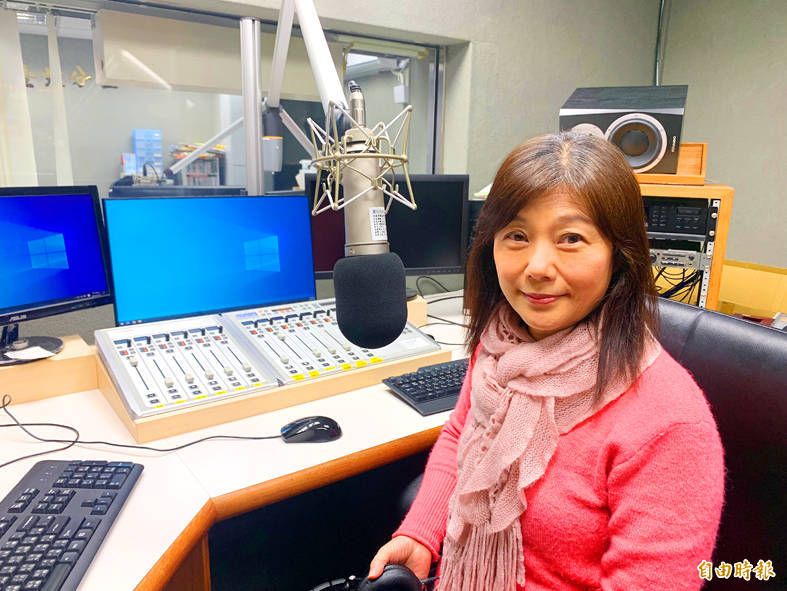《TAIPEI TIMES》 Radio listeners drop by 40%: survey

Radio host Lin Meng-ping is pictured in a studio at the Police Radio Station in Taipei on Thursday last week. Photo: Ting Yi, Taipei Times
TREND: Although fewer people still listen to radio, the medium remains irreplaceable due to its efficacy in the event of war or disaster, experts said
By Ting Yi / Staff reporter
About 60 percent of people in Taiwan have not listened to radio broadcasts in six months, and listeners have reduced by more than 40 percent in nine years, a National Communications Commission (NCC) study showed.
An NCC-commissioned radio listening behavior survey, which is conducted every three years, showed that the number of radio listeners have been declining, with only about 38 percent of respondents having listened to radio in the previous six months and 62 percent of them no longer being radio listeners.
In comparison with about 63 percent of the people having listened to radio in the previous six months in 2013, radio listeners have reduced by about 40 percent.
Vehicle radio is the most common equipment for listening to the medium, with about 66.5 percent of people using it, while people who use a radio set reduced by 15 percent this year, down to 26.9 percent, and people who use a smartphone or tablet PC to listen to radio increased by about 10 percent, to 18.9 percent, the study showed.
The most common reason for listening to radio is “boredom or for killing time,” accounting for 33.5 percent, followed by “enjoy being accompanied by sound” at 24.3 percent, and other common reasons including “being able to sing along or listen to songs,” listening to traffic report and breaking news.
While the number of radio listeners are reducing, there are still some loyal listeners who listen to radio broadcasts every day.
A listener surnamed Chen (陳) said she would listen to radio programs with her family in the car when she was young and she still listens to them while commuting or at home, as she likes the feeling of being accompanied by some sound.
NCC Department of Broadcasting and Content senior specialist Chen Chin-shuan (陳金霜) said with smartphones and the Internet being so convenient, many people just use their smartphones to watch videos or surf the Internet, which has affected radio broadcast, but it still has its irreplaceable feature such as the ability to listen to it while driving.
Radio and audio-visual industries are not the same, and there are fewer complaints on radio broadcasts, he said.
There are 186 radio stations with valid license, including 86 short-to-medium wave stations and 69 medium-wave stations, Chen said.
Stations that were established before 1993 were “radio broadcasting enterprises,” which mostly use amplitude modulation transmissions, he added.
If classified by their registered capital, stations with a capital of NT$200 million (US$6.51 million) or more are considered national radio, Chen said, adding that those with capital of NT$30 million to NT$200 million are considered regional radio and those with less capital are considered community radio.
While the number of radio listeners decreased, academics said that radio stations should consider transforming to “listen on demand,” but radio is still irreplaceable, as radio transmission is more convenient and would be unimpeded if a war broke out, and TV and Internet transmission were cut off.
Shih Hsin University Department of Radio, TV and Film associate professor Jason Ho (何吉森), a former NCC member, said that most developed countries would not give up radio broadcasting, mainly because it is irreplaceable in disaster prevention and relief.
Radio is also a medium that provides companionship, allowing listeners to do other things while they listen to it, he said.
Du Sheng-tsung (杜聖聰), chair of Ming Chuan University’s Department of Radio and Television, said radio stations must pay attention to the changes in audience and platform, and try to diversify in its profit model.
新聞來源:TAIPEI TIMES













